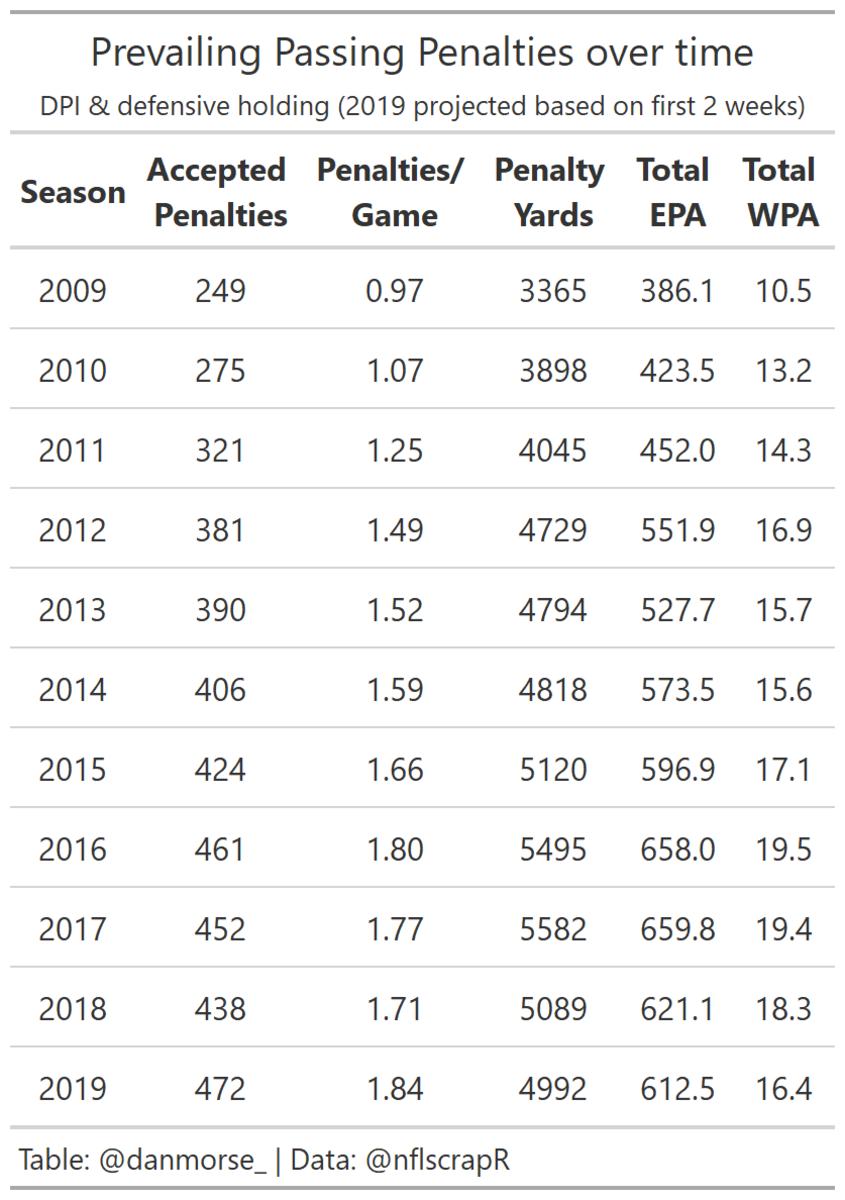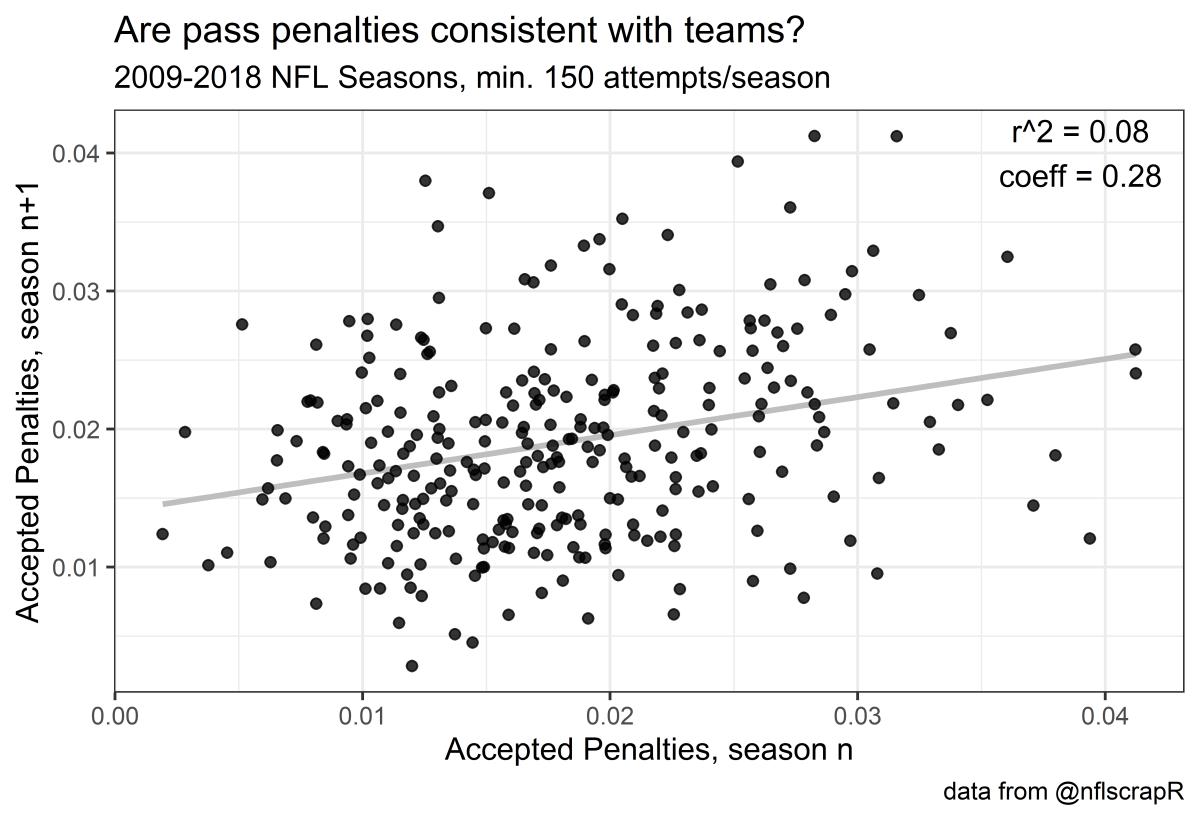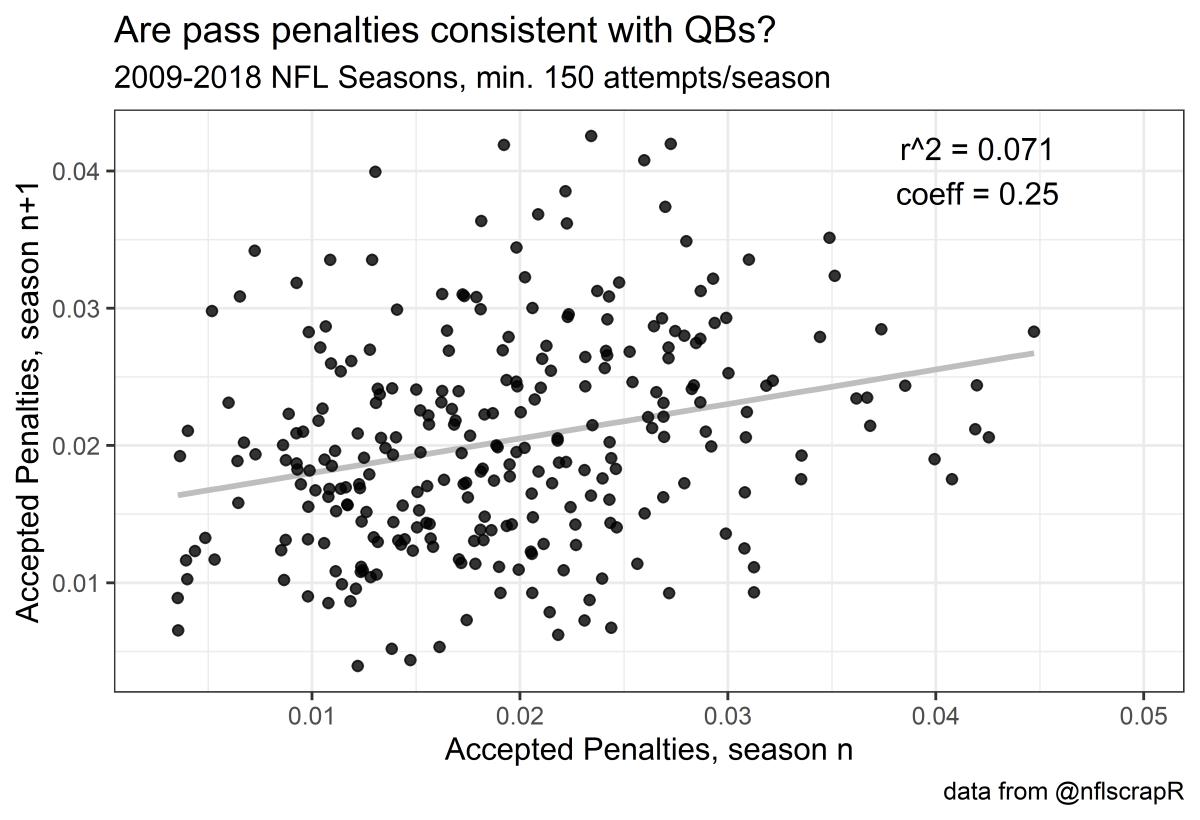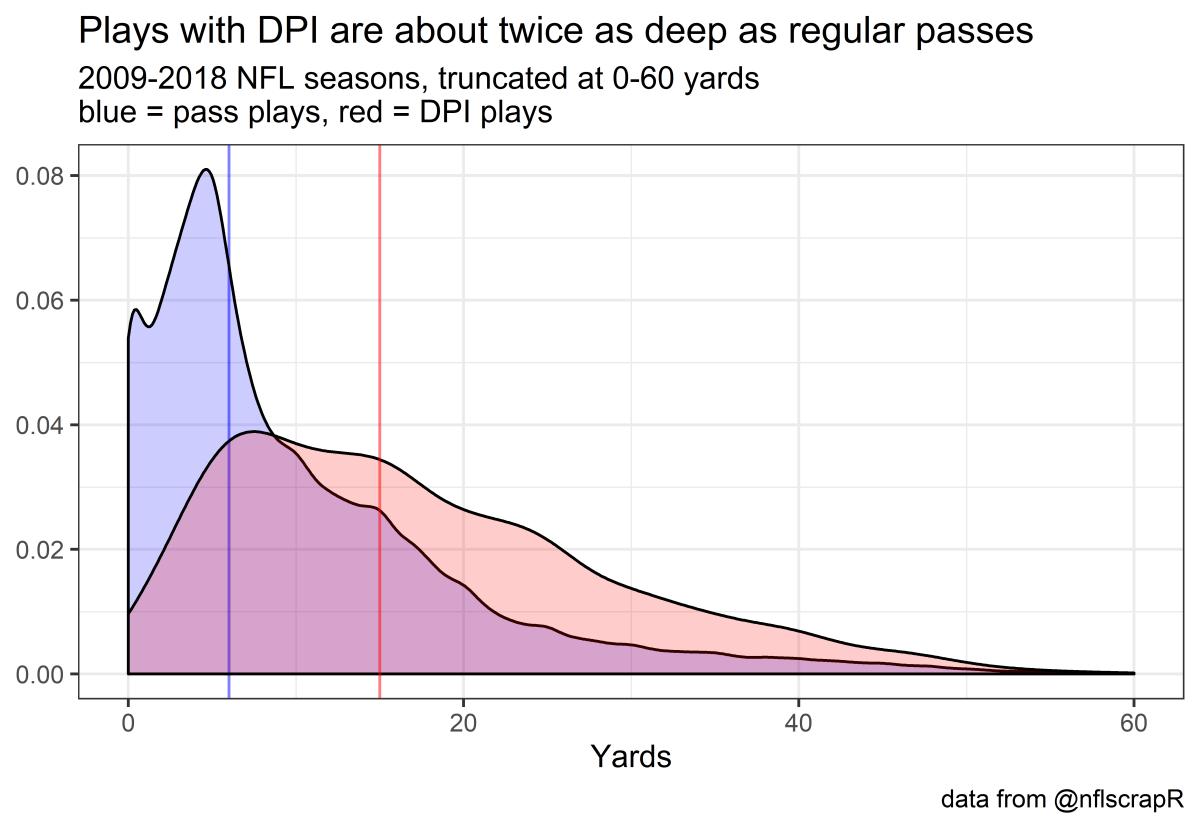Week 3 EPA Ranks: Penalties like DPI are changing the NFL, can it be exploited?
The hot topic late this offseason centered around the rule change that allowed coaches to challenge plays with pass interference penalties (or plays where they thought pass interference occurred but was not called). In Week 2, Pete Carroll challenged a non-call midway through the fourth quarter that was overturned and resulted in a defensive pass interference call on the Steelers. The play then gave the Seahawks a 38-yard gain and a first down rather than a 3rd-and-20 in their own territory. It was the largest swing in win probability from a defensive pass interference call so far this season.
This begs the question: is it possible to game plan, to a certain extent, your offense around maximizing pass interference penalties? Obviously you can't bank on playing for DPI on every single play, it just won't work. But I do wonder if there are certain teams or players who draw these penalties more often than others.
But before we get into the galaxy brain idea that is the all-PI offense, let's take a look at our EPA power rankings through Week 2.
(Reminder: Expected Points uses data from previous NFL seasons to determine how many points a team is likely to come away with on a given play, based on down, distance, time remaining, and field position. The difference in expected points at the start of a play and expected points at the end is referred to as expected points added, or EPA.)

The Patriots take the top spot this week after shutting out the Dolphins in Miami. Baltimore remains the only team near New England after a close game against the Cardinals.
Tampa Bay had the largest jump this week, moving up 14 spots on the back of what might actually be a pretty good defense. They did play a hobbled Cam Newton, who just hasn't looked like himself yet this year, but going on the road on a Thursday is no easy task. The Rams also jumped back up closer to where we'd expect after last season, and Cleveland rebounded well after a rough Week 1 with a solid outing from their defense.
Cincinnati saw the biggest drop in the rankings after their 24-point loss to a good looking 49ers team. New Orleans fell 10 spots, and it doesn't appear they'll have an easy time getting out of it with Drew Brees set to miss at least 6 weeks.
Speaking of the Saints, let's get back to the benefits that pass interference penalties can have for an offense.
Penalties, especially against the defense, have been increasing in recent years. Much of it has been in order to protect the players, such as the defenseless-receiver rule and last year's emphasis on roughing the passer. But there has also been a significant increase in penalties to the secondary that simply make it easier to pass the ball, namely defensive pass interference and defensive holding.

Defensive holding and DPI increased every season until their peak in 2016, when they nearly doubled their total from just 7 years previously. This season, with the advent of the pass interference challenge, we are on pace to hit a new high. And just how important are these penalties? We are on our way to seeing the fourth-straight season with over 600 EPA straight from penalties in the secondary. For reference, removing penalty plays from last season, the Kansas City Chiefs would have finished with a total passing EPA of 212. We're adding 3 Chiefs passing offenses worth of EPA to the league solely on penalties. It's a significant amount and warrants the question:
Can teams exploit this?
My initial thought is that yes, there is potential to be better at drawing penalties in the secondary, and there would definitely be incentive to go for it in certain situations. Think late in a half, from your own side of the field, with very little time left. Draw a DPI and you get field position plus another play, even if time expires. Let's see if teams are currently exploiting this.
(Note: penalties from here on out are referring to only accepted defensive holding & defensive pass interference penalties)

Here we've got the penalties-per-pass-attempt for every team season since 2009 compared to the following season's penalties per attempt. There is very little correlation here. It seems that if there is skill involved in this, there isn't a team that is currently a) good at it, or b) using it to their advantage.
My first thought when looking at a potentially exploitable skill in the NFL is to see where the Patriots rank. Sure enough, the 2017 Patriots had the most penalties-per-pass-attempt in the NFL. But that was their only season in the top-30, so it's not as consistent as I thought.
Could these penalties be consistent at all with quarterbacks?

We get pretty much the same results, which makes sense, seeing as how most teams use just one quarterback for the majority of a season. But there is one interesting name that pops up in the top penalty-drawers of the last decade.
Carson Palmer was remarkably consistent in regards to penalties drawn. From 2015-2017, Palmer ranked in the top 6 in penalties drawn in the NFL. He finished each season drawing a penalty about every 30 attempts. If a team wanted to explore adding this to their skill set, Palmer might be of some assistance.
Another quality we can examine is the depth of passes with defensive pass interference compared to those without. What we find is that the median target depth for penalized plays is nearly three times as much as the median pass play.

A larger portion of DPI plays also occur more than 10 yards past the line of scrimmage than normal pass plays. This to me indicates that while throwing for pass interference might not be a repeatable skill, the reward it leaves teams is great enough that it's definitely worth trying in times of desperation.
It seems that while we may not be ready for the era of the all-PI offense, we are still in an era where penalties on deep passes are helping more than they ever have before in the NFL. We also shouldn't forget that watching teams look for pass interference calls might not be very fun, so maybe it's just best that we let this idea die right here.
